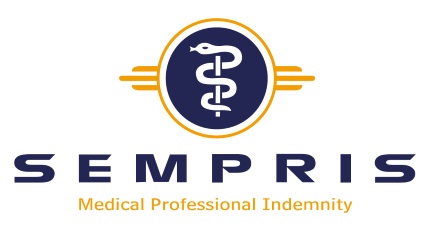Majid Hassan, Partner and Ed Mellor, Lawyer at Capsticks Solicitors on knowing what to report, and when and how to report it
Download a PDF version of this guideline here Knowing what to report and, when and how to report it
Understanding the intricacies of a medical malpractice insurance policy is important, particularly, as any insured individual or organisation needs to be aware of the actions they need to take in order to try and make certain that the policy responds to a claim. In this article we briefly review some of the essential aspects of this area and highlight key pointers to remain vigilant of.
Claims made
The majority of medical malpractice insurance policies (SEMPRIS included) are termed “claims made” policies. This means that the policy will respond only if a claim is made within the policy period regardless of when the events which are the subject of the claim actually occurred. Therefore, if a circumstance is known to you before the policy is entered into, then the policy will not respond, unless you have informed the insurer when entering into the policy, either through the Proposal Form or otherwise. A “retroactive” date in the policy will set the time period prior to which the events giving rise to claims will not be covered by the policy.
Proposal form
Proposal forms vary in style, but rarely in substance. They provide an opportunity for an Insured to inform their prospective insurer of any incident that has occurred which may, or is likely to (depending on the wording), give rise to a claim. Any complaints by a patient or letter from solicitors requesting disclosure of records should be raised on the proposal form whether that is for a new policy or renewal. Non-disclosure of material information that may be relevant to an underwriters decision to offer a policy and the terms of that offer may result in the insurer declining cover for that claim or, possibly even deciding that the policy should be deemed void from the beginning due to the non – disclosure. When transferring medical malpractice cover from a Medical Defence Organisation (MDU, MPS, MDDUS) or insurer, the new underwriters will commonly request a ‘letter of good standing’ from your current medical malpractice provider that will declare any settled or notified claims.
A circumstance requiring notification to Insurers
To ensure full medico-legal support and indemnity cover it is important to ensure that any potential event or circumstance (sometimes referred to as an occurrence) is discussed and notified to your nominated Medico-Legal advisers at the time of the event. This does not need to be a formal claim from a patient’s solicitors, but may be something as simple as a patient questioning the insured’s judgment or the treatment provided. Discussing or notifying a ‘potential event’ or circumstance with medico legal advisers is unlikely to have a bearing on individual subscription rates. If you are in any doubt about the significance of an event / occurrence you should discuss it with your Medico-Legal advisers. By informing your Medico-Legal advisers early, their position is not prejudiced as they are able to commence their investigations and determine the best course of action before significant legal costs are incurred on all sides. Failure to notify in time may also prejudice your position if for example judgement is entered against you for failing to respond to court documents.
Control of claims
A medical malpractice policy will often include a claims control clause. Insurers maintain the control of the claim and therefore, any communication that you have had with a patient or their solicitors which goes beyond that of normal doctor-patient correspondence or simple acknowledgment of correspondence received may prejudice insurers’ position, and cover may be declined. It is important that you do not respond to the claim personally either accepting what is claimed or putting forward a defence to the claim.
Excess/Deductible
Depending on the policy, an excess may be payable by an insured in relation to each and every claim brought against them. This excess would be paid before insurers pay funds, and would go towards any damages payable to the patient, the patient’s legal costs, or the insured/insurer’s legal costs. Once the excess has been paid in full, insurers will cover any additional funds up to the limit of indemnity set out in the policy.
Key points
- You must provide insurers with all information about potential circumstances before entering into a policy, even if these do not yet amount to a claim, unless they have been accepted as notifications under a previous policy;
- A judgment call will need to be made as to when to notify insurers of a circumstance/occurrence, but the threshold should be low;
- It is important that insurers’ position is not prejudiced by you corresponding with a patient or solicitors once aware of a circumstance.
How Capsticks can help
Capsticks advise doctors and their representatives on all aspects of medical malpractice claims, and in respect of serious incidents that may also result in an Inquest, disciplinary or criminal proceedings, as well as the GMC.
More GuidelinesShare this post:
- - -

